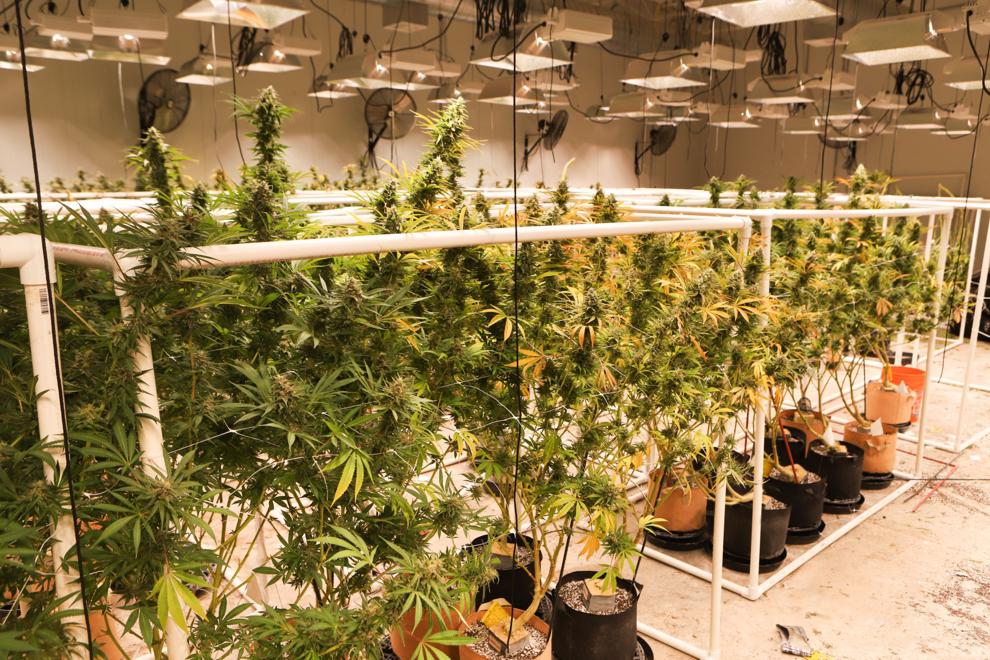
Newark signals openness to allow marijuana dispensaries, with some conditions
As some towns in Delaware ban marijuana dispensaries, Newark appears open to allowing them to locate within city limits, at least in a limited capacity.
On Dec. 5, a majority of the planning commission recommended adding marijuana dispensaries as a conditional use in certain commercial districts, meaning that each prospective business would be required to petition city council for a special-use permit. The permit could be denied if council determined that the dispensary would be a detriment to the community.
This approach would treat dispensaries similar to bars, which already require a special-use permit. Notably, liquor stories do not require a special-use permit.
“Since this is all new….to me it makes sense to proceed, but proceed with caution and common sense,” Commissioner Kazy Tauginas said.
The issue now goes to city council for the final decision.
The debate over dispensaries in Newark mirrors similar conversations in many other Delaware towns. When the state legislature legalized marijuana earlier this year, it gave cities and towns the ability to regulate where – and if – dispensaries can open within municipal borders. (Towns cannot, however, pass their own regulations regarding the use of marijuana.)
The state is still developing regulations, and the opening of the first dispensary is at least a year away, but Newark Planning Director Renee Bensley said the city should decide whether to allow dispensaries before companies begin pursuing licenses from the state.
“If this was going to be a nonstarter in Newark, we wanted to be able to let people know that before they shell out a lot of money to apply for a license,” Bensley said.
If Newark does nothing, dispensaries would be treated the same as any other retail store, which are allowed in the central business district and general commercial zones. That would allow dispensaries on Main Street, most large shopping centers and parts of South College Avenue, Cleveland Avenue, South Main Street, Delaware Avenue, Elkton Road and Ogletown Road. They would also be allowed on the STAR Campus, if permitted by the University of Delaware.
Meanwhile, businesses that grow, test or turn marijuana into other products would be allowed in industrial zones and the STAR Campus.
Another option is a ban dispensaries completely, as Middletown and some of the beach towns have done.
However, Bensley warned that would likely lead to dispensaries opening right outside Newark’s borders.
“If we were to go for a straight prohibition, then you just have shops setting up around the periphery of Newark, that we then have no hand in regulating,” she said. “That’s something else that we would ask to be considered as part of the discussion as well.”
Treating dispensaries as a conditional use in the central business district, general commercial and STAR Campus zones – the path favored by the planning commission – is a compromise option that would allow dispensaries to serve Newark while still giving city council the ability to regulate them. Similar permits could be required for growing, testing and production businesses in industrial zones.
If a particular location is problematic, council could deny the special-use permit. The city could also establish a procedure for suspending or revoking the permit if the business causes crime or code enforcement issues, similar to how bars are treated.
Council could also impose additional conditions, such as restricting how late a dispensary can stay open, restricting how close to a school, library or church a dispensary can be located, or banning signage that contains marijuana imagery. It could even cap the number of dispensaries allowed in Newark or require them to be a certain distance from each other.
Council could also reduce the zoning categories that allow dispensaries, perhaps banning them downtown but allowing them on the outskirts of town.
On Dec. 5, a majority of the planning commission recommended adding marijuana dispensaries as a conditional use in certain commercial districts, meaning that each prospective business would be required to petition city council for a special-use permit. The permit could be denied if council determined that the dispensary would be a detriment to the community.
This approach would treat dispensaries similar to bars, which already require a special-use permit. Notably, liquor stories do not require a special-use permit.
“Since this is all new….to me it makes sense to proceed, but proceed with caution and common sense,” Commissioner Kazy Tauginas said.
The issue now goes to city council for the final decision.
The debate over dispensaries in Newark mirrors similar conversations in many other Delaware towns. When the state legislature legalized marijuana earlier this year, it gave cities and towns the ability to regulate where – and if – dispensaries can open within municipal borders. (Towns cannot, however, pass their own regulations regarding the use of marijuana.)
The state is still developing regulations, and the opening of the first dispensary is at least a year away, but Newark Planning Director Renee Bensley said the city should decide whether to allow dispensaries before companies begin pursuing licenses from the state.
“If this was going to be a nonstarter in Newark, we wanted to be able to let people know that before they shell out a lot of money to apply for a license,” Bensley said.
If Newark does nothing, dispensaries would be treated the same as any other retail store, which are allowed in the central business district and general commercial zones. That would allow dispensaries on Main Street, most large shopping centers and parts of South College Avenue, Cleveland Avenue, South Main Street, Delaware Avenue, Elkton Road and Ogletown Road. They would also be allowed on the STAR Campus, if permitted by the University of Delaware.
Meanwhile, businesses that grow, test or turn marijuana into other products would be allowed in industrial zones and the STAR Campus.
Another option is a ban dispensaries completely, as Middletown and some of the beach towns have done.
However, Bensley warned that would likely lead to dispensaries opening right outside Newark’s borders.
“If we were to go for a straight prohibition, then you just have shops setting up around the periphery of Newark, that we then have no hand in regulating,” she said. “That’s something else that we would ask to be considered as part of the discussion as well.”
Treating dispensaries as a conditional use in the central business district, general commercial and STAR Campus zones – the path favored by the planning commission – is a compromise option that would allow dispensaries to serve Newark while still giving city council the ability to regulate them. Similar permits could be required for growing, testing and production businesses in industrial zones.
If a particular location is problematic, council could deny the special-use permit. The city could also establish a procedure for suspending or revoking the permit if the business causes crime or code enforcement issues, similar to how bars are treated.
Council could also impose additional conditions, such as restricting how late a dispensary can stay open, restricting how close to a school, library or church a dispensary can be located, or banning signage that contains marijuana imagery. It could even cap the number of dispensaries allowed in Newark or require them to be a certain distance from each other.
Council could also reduce the zoning categories that allow dispensaries, perhaps banning them downtown but allowing them on the outskirts of town.
